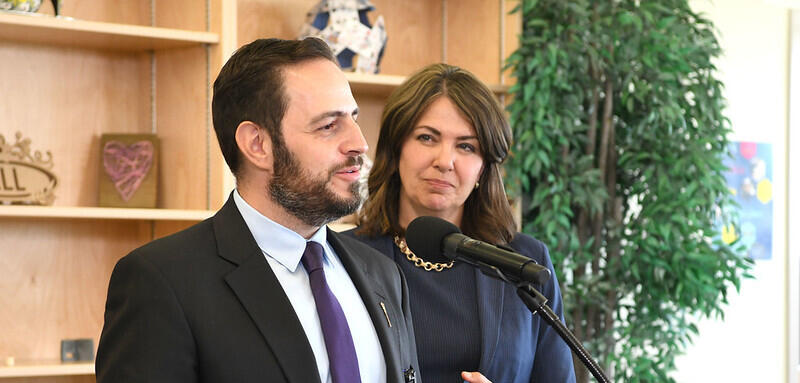Starting this fall, students could be subjected to provincial testing up to 32 times before they leave elementary school. The previous total was 10, which translates to an increase of over 200 per cent in tests.
“When so many kids are falling through the cracks, we need to be giving them a safety net instead of measuring how fast they’re falling,” said Jason Schilling, president of the Alberta Teachers’ Association (ATA).
The biggest change to the testing framework lies with the youngest students. Schools will now be required to administer provincially mandated numeracy and literacy tests to students in Grades 1 to 3 up to three times each school year and, for the first time in Alberta, kindergarten students will now be subjected to standardized testing.
In early July, Education Minister Demetrios Nicolaides sent a letter to public, charter and private school authorities throughout Alberta outlining how he believes this new approach will support our youngest learners to succeed.
“Students develop critical foundational knowledge in literacy and numeracy in the early years of education,” wrote Nicolaides. “Assessing students in their early years provides essential information to teachers, schools, parents and Alberta Education about potential student learning issues and needs and ensures that students requiring additional supports receive the help they need early in their education.”
Schilling says students need more supports, not more tests.
“Teachers don’t need a test to identify which students are struggling; they need smaller classes and more supports to get those kids additional help.”
Schilling says the time and energy required by teachers to administer tests takes away from time teachers could actually be helping kids.
“All this is being foisted on the same teachers who are still trying to implement new curriculum across multiple grades and subject areas.”
Alberta Education says their enhanced early years assessment framework is based on stakeholder input and expert advice — something Schilling takes issue with.
“While the government claims to have listened to experts, it’s clear they did not hear what actual teachers had to say,” said Schilling. “Politicians and bureaucrats who have little knowledge and experience of the realities of Alberta’s classrooms might think this is a great idea, but teachers, who will end up spending hours administering tests and preparing students for them in September, January and June, do not.”
A better approach, says Schilling, is to respect teachers’ professional judgment and allow them to determine which students could benefit from an assessment and when, rather than repeatedly testing every student. He said the province needs to stop the distractions and deal with the real issue in public education, which is the gross lack of appropriate funding.
“Alberta spends the least per student on public education in Canada. That’s why we have large and growing class sizes, inadequate supports for students with special needs, shortages of aides and substitutes, and good teachers leaving the profession,” said Schilling. “Alberta is not going to test its way out of underfunding. It’s time our provincial leaders got their priorities straight.”
Nicolaides’s letter to the school boards outlined the following framework for testing in the early grades:Kindergarten: Starting in January 2025, screening will be required in literacy and numeracy for all students in January of each year. Grades 1 to 3: Mandatory screening assessments will continue in grades 1 to 3; however, the timing and frequency of these assessments will change. Starting in September 2024, the literacy and numeracy screening for students in grades 1 to 3 will now be completed in September and January, with an additional assessment in June for those students identified in January as requiring additional supports. The administration window to complete all screening assessments in these grades will be extended to three weeks. Grade 3: Student Learning Assessments will be permanently discontinued and will no longer be available for use. Grades 4 and 5: Starting in September 2026, screening assessments in literacy and numeracy for students in grades 4 and 5 will be introduced. Further information about this requirement will be shared at a future date. Grade 6: Provincial achievement tests for students in grade 6 will continue to occur in May and June. |



